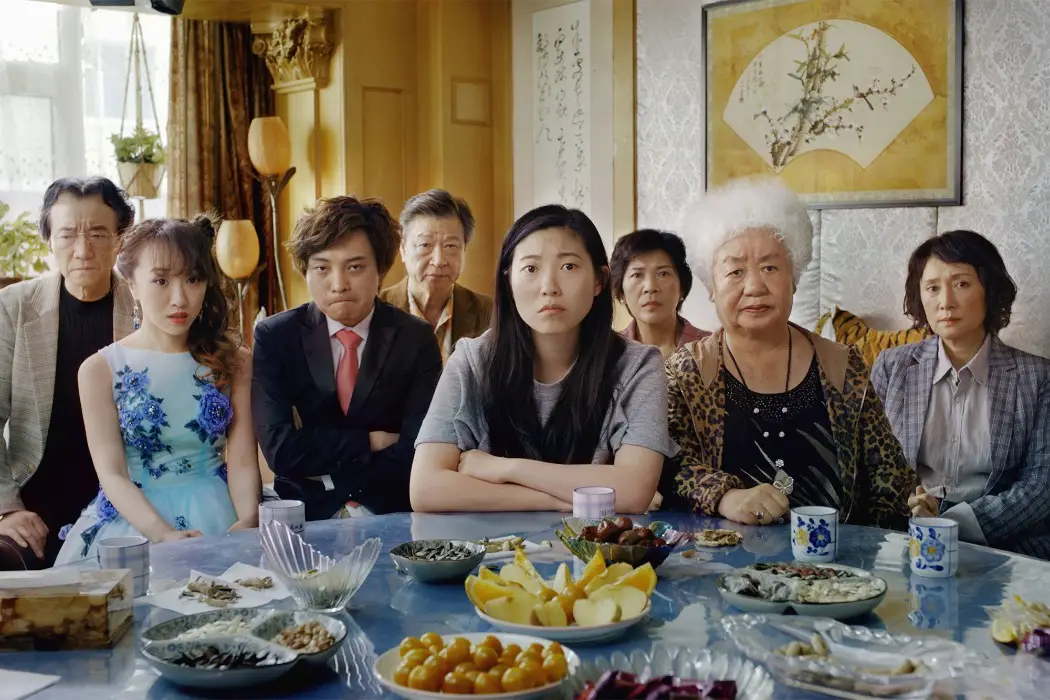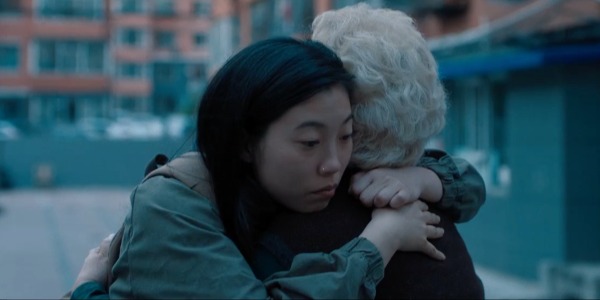THE FAREWELL: A Subtle High Concept Drama

Alistair is a 25 year old writer based in Cambridge.…
The phrase “adapted from a podcast” should send a shiver down the spine of any audience member, but five years removed from her debut feature, Lulu Wang has spent a considerable amount of time developing a film based on an episode of This American Life she guested on. It doesn’t hurt that the semi-autobiographical tale has a simple, ingenious premise that any screenwriter searching for a high concept would kill for: a woman getting told her grandmother is dying, but having to maintain the lie that she’s getting better so she can be happy for her remaining days.
Even if it didn’t have a basis in a true story, let alone a custom that is undertaken by many Chinese families, it’s hard to think of a better way to explore the themes of living between two disparate cultures, and making this engrossing to cultures far removed from either.
A One Note High Concept
The Farewell has understandably become one of the most beloved films on this year’s festival circuit – and one that I’m afraid to say left me cold, despite the strength of Wang’s direction and the understated performances by the entire ensemble. I’ve spent the past week since seeing her film trying to ascertain why such a heartfelt, personal story felt less than the sum of its parts. I was left admiring the humble nature of the performances and how Wang manages to make a film largely consisting of interior conversations feel visually dynamic, but struggled to reconcile these positives with being fairly moderate on the film overall.
When we are introduced to Billi (Awkwafina), she’s behind on her rent, and her only connection to her wider family is her regular calls with grandmother Nai Nai (Zhao Shuzhen). Then, her parents (Tzi Ma and Diana Lin) tell her that Nai Nai has been diagnosed with lung cancer and given only a few months to live, and using the pretence of Billi’s cousin’s wedding, will be flying over to spend time with her before she passes.
Billi uses her remaining money on the return flight to China and discovers that the family and the doctors have all agreed to lie to Nai Nai about her health, so she can be carefree for her remaining time. This isn’t an unusual custom in China, but it’s enough to make Billi feel divorced from the culture, with her conscience weighing on her at all times; does she do the right thing and reveal all, even if it would lead to misery?

I initially attributed being somewhat underwhelmed to the film’s refusal to expand upon its premise – admittedly, something of a moot point considering its an autobiographical tale, but one that meant that my emotional response didn’t develop with the film. Other people have been in floods of tears, and I was just waiting for the moment that it would change gear into something more powerful; the lie never causes any major spoken conflicts between the family, and there are no significant plot developments to accelerate the urgency of the central moral dilemma.
The cast (Awkwafina and Zhao Shuzhen in particular) do excellent work with the material, but in order to stay true to the facts, Wang strains too hard, with extensive patches in the film where you could be forgiven for forgetting the premise altogether as a low-key family drama takes over. I have no issues with the subtlety of the drama, but it’s very difficult to reconcile with a weighty premise that should be more open in its dissection of cultural differences and family dynamics.
It should also be mentioned that the title has a double meaning, as the film is dealing with the loss of a family member as much as it saying goodbye to a country that you may never return to. This subtly builds into a rather moving finale that offers delayed gratification for all the emotions and themes that have been bubbling under the surface – and then, in one fell swoop, Wang undermines this with a postscript that strips away the ambiguity and offers a clear resolution to the film’s central tension.

This may be taken directly out of Wang’s family life, but it’s a postscript the drama doesn’t need, ruining what makes the film’s final minutes so moving and making it more inexplicable as to why she hadn’t heightened the inter-family conflict earlier on if it were to resolve in this way. It’s a baffling way to end the film, not easing the fraught emotions of the audience so much as it feels like a cheap way to justify evading in-depth explorations of cultural differences in the family throughout, knowing how the brief rift between them would resolve itself.
Still a Great Showcase for Lulu Wang’s Directorial Abilities
But this being said, I can’t help but admire The Farewell in spite of my overall lukewarm reaction. I was frequently reminded of Ang Lee’s “Father Knows Best” trilogy for how it explored inter-generational family dynamics, and in particular, the trilogy’s second film The Wedding Banquet, for how it explored these across two very different cultures on separate continents.
Wang’s visual sensibility is reminiscent of Sofia Coppola – there are scenes of walking around a foreign city, or looking out of car windows, that seem like very deliberate references to the alienation of Lost in Translation, but without the condescending “othering” of the city the film takes place in.
And then there are the performances. Awkwafina’s brand of comic acting is usually way too broad for my tastes, often relying on the supposed innate hilarity of an Asian American adopting African American culture in a way that can often read as intensely problematic.
After watching The Farewell, I can only hope that she makes character dramas her forte; I may have struggled to connect with the film due to its subtlety, but seeing Awkwafina divorced from her usual heightened comedic inclinations revealed new, unexpected strengths, and I would be more excited to see her ditch the studio comedies for more films on a similar wavelength. And as Nai Nai, Zhao Shuzhen is the film’s dry comic heart, throwing delightfully cutting remarks at every member of her family, ensuring that the film never descends into something more emotionally traumatic.
Conclusion: The Farewell
Overall, The Farewell is a mixed bag. It reveals Lulu Wang is a director to watch out for, and that Awkwafina is a talent who deserves far better than the broad comedies she’s made her bread and butter. But I can’t pretend the film moved me in the way it appears to have moved everybody else, leaving so many of the themes it wishes to explore unspoken, and never expanding upon its premise beyond the way that it’s established.
What did you think of The Farewell? Are there other films that do a better job of examining not only generational differences but disparate cultural backgrounds as well?
The Farewell is released in the US on July 12. All international release dates are here.
Does content like this matter to you?
Become a Member and support film journalism. Unlock access to all of Film Inquiry`s great articles. Join a community of like-minded readers who are passionate about cinema - get access to our private members Network, give back to independent filmmakers, and more.
Alistair is a 25 year old writer based in Cambridge. He has been writing about film since the start of 2014, and in addition to Film Inquiry, regularly contributes to Gay Essential and The Digital Fix, with additional bylines in Film Stories, the BFI and Vague Visages. Because of his work for Film Inquiry, he is a recognised member of GALECA, the Gay & Lesbian Entertainment Critics' Association.













